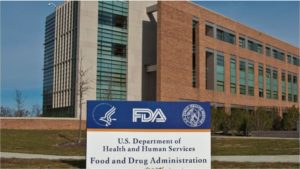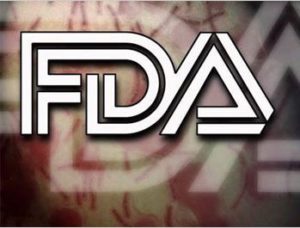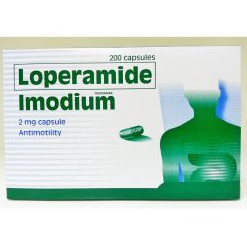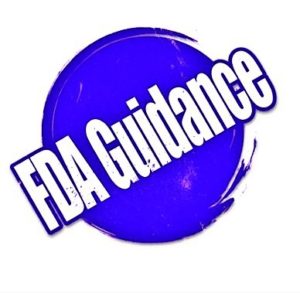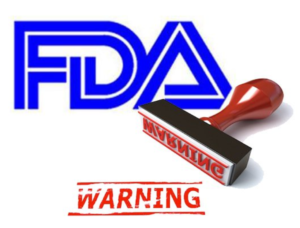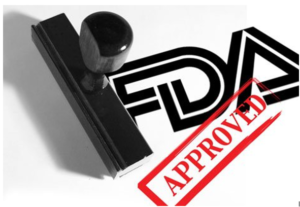- ‘Ostracized and criticized’ Indian CRO hits US FDA with $50m lawsuit (in-pharmatechnologist.com)
Semler Research Center says the US FDA caused the “complete annihilation” of its business after regulators rejected bioanalytical studies on the back of data integrity concerns...In April 2016, the US Food and Drug Administration issued Semler Research Center an ‘Untitled Letter’ stating evidence it had found of data manipulation in a number of bioanalytical studies during an inspection of its facility in Bangalore, India...The Agency then sent a notice to drug sponsors that bioavailability/bioequivalence studies conducted by the contract research organisation would need to be repeated...Semler filed a lawsuit against the FDA, the United States Department Of Health And Human Services and the United States Of America – along with various individuals – for total damages of approximately $50m...The firm claims the FDA’s actions were in violation of the Fifth Amendment, interfered with economic advantages and intentionally inflicted financial distress on the company.
- US FDA to take risk-based approach to biomanufacturing inspections (in-pharmatechnologist.com)
A risk-based approach to inspection regulations could result in increased audits of more complex manufacturing sites, the FDA says...The final rule...revises time of inspection requirements and removes the duties of inspector requirements, both contained in section 600 of the Code of Federal Regulations (entitled ‘Biological Products: General’)...It will affect how often the Food and Drug Administration is inspecting certain facilities and implement a risk-based schedule replacing...the biennial inspection requirement for drug and biological product establishments required in the Federal Food Drug and Cosmetic Act and aligning the requirements with 2012’s Food and Drug Administration Safety and Innovation Act ...“This change clarifies the FDA’s flexibility under FDASIA to inspect facilities either more or less frequently, according to the potential risk the establishment’s operations present, without diminishing public health protections,”...According to Commissioner Scott Gottlieb, the ruling is part of efforts to modernise the FDA’s regulations, remove inefficient policies and reduce costs.
- FDA Moving to Enhance Drug Approval Transparency, Gottlieb Says (ptcommunity.com)
New pilot program to evaluate disclosure of clinical study reports...As part of its efforts to enhance transparency around drug approval decisions, the FDA is exploring ways it can continue to build on its obligation to share information…The agency is especially focused on information that can improve patient care and better inform providers about the products they prescribe. One place where it is evaluating how it can release information that may better inform scientists, providers, and patients is clinical study reports (CSRs)...The FDA has launched a pilot program to evaluate whether disclosing certain information included within CSRs following approval of an NDA improves public access to drug approval information...The FDA intends to post the parts of the CSRs that were most important to the agency’s assessment of the safety and efficacy of the drug, specifically, the study report body, the protocol and amendments, and the statistical analysis plan for each of the participating product’s pivotal studies...
- FDA Proposes Crackdown on Risky Homeopathic Drugs (ptcommunity.com)
The FDA is proposing a new risk-based enforcement approach to homeopathic drug products. Among the targets: products marketed for serious diseases without showing clinical benefits, products that contain potentially harmful ingredients, and products that don’t meet current good manufacturing practices...homeopathic drug products are subject to the same requirements related to approval, adulteration, and misbranding as any other drug product. However, prescription and nonprescription drug products labeled as homeopathic have been manufactured and distributed without FDA approval under the agency’s enforcement policies since 1988...“In recent years, we’ve seen a large uptick in products labeled as homeopathic that are being marketed for a wide array of diseases and conditions, from the common cold to cancer,” said FDA Commissioner Scott Gottlieb...“In many cases, people may be placing their trust and money in therapies that may bring little to no benefit in combating serious ailments, or worse—that may cause significant and even irreparable harm because the products are poorly manufactured, or contain active ingredients that aren’t adequately tested or disclosed to patients...The FDA intends to focus its enforcement authorities on the following kinds of products:
- Products with reported safety concerns
- Products that contain or claim to contain ingredients associated with potentially significant safety concerns
- Products for routes of administration other than oral and topical
- Products intended to be used for the prevention or treatment of serious and/or life-threatening diseases and conditions
- Products for vulnerable populations
- Products that do not meet standards of quality, strength, or purity as required under the law
- FDA asks drugmakers to limit amount of opioid drug in packaging (reuters.com)
...Food and Drug Administration is asking manufacturers of a common opioid medicine to change the way the drug is packaged, as part of efforts to deter its abuse amid an opioid epidemic...The FDA said...it sent letters to manufacturers of diarrhea medicine loperamide, asking them to ensure that packages contain only a limited amount of the drug that is appropriate for use for short-term diarrhea...The agency wants to eliminate the large bottles in which loperamide is often sold because the abuse of the drug requires such large quantities.
- Agencies target ‘illegal, unapproved’ products that claim to treat opioid addiction (washingtonpost.com)
Federal regulators said Wednesday that they are cracking down on marketers and distributors selling a dozen products that “illegally” claimed to treat or cure opioid addiction and withdrawal...In letters sent earlier this month, the Food and Drug Administration and the Federal Trade Commission cited products that target people desperate to find relief from their addictions. They include “Opiate Freedom 5-Pack,” “CalmSupport” and “Soothedrawal.” Most of the 12 items are marketed as dietary supplements, while two are homeopathic remedies, the FDA said...The letters are the latest effort to combat what FDA Commissioner Scott Gottlieb called a “proliferation” of unapproved products claiming to treat opioid addiction. In a statement, Gottlieb excoriated “unscrupulous vendors who are trying to capitalize on the epidemic by taking advantage of consumers and selling products with baseless claims.”
- FDA Delays Implementing Parts of ‘Intended Use’ Rule (raps.org)
Confusion and concerns over portions of a tobacco-related final rule have pushed the US Food and Drug Administration to delay implementation of the sections dealing with the types of evidence FDA may consider to determine how a manufacturer intends for its medical product to be used...This is a determination that can have significant implications for, among other things, how manufacturers communicate about and promote their products. How we determine intended use is an important issue that touches many fundamental aspects of the FDA’s work...FDA is seeking comments on the proposal to delay...effective date of the portion of the rule related to intended use of medical products, though the tobacco-related portions of the final rule will go into effect...At issue is how the initially proposed rule sought to remove a sentence, which FDA Law Blog last February called "the famous 'knowledge' sentence: 'But if a manufacturer knows, or has knowledge of facts that would give him notice, that a [drug or device] introduced into interstate commerce...is to be used for conditions, purposes, or uses other than the ones for which he offers it, he is required to provide adequate labeling for such a drug/device which accords with such other uses to which the article is to be put.'"...But the final rule did not remove the sentence and instead amended it with new language that angered industry groups, which called the move "a new and unsupported legal standard."
- FDA Releases 2018 Compounding Policy Priorities Plan (iacprx.org)
The Food & Drug Administration has released a 2018 Compounding Policy Priorities Plan...FDA also issued a final guidance on mixing, diluting, or repackaging biological products, which describes the conditions under which the agency does not intend to take action when certain biological products are mixed, diluted, or repackaged in a manner not described in their approved labeling. According to FDA, "These policies are intended to minimize public health risks, while preserving access to these products for patients who have a medical need for them."
- FDA issues warning letter to Australian CMO (fiercepharma.com)
The warning letter was sent late last month to Delta Laboratories of New South Wales, Australia, after the FDA put all of the company’s human and animal drugs and antibiotics on its import alerts list in September...According to the FDA, Delta didn’t fully investigate discrepancies, including signs that might have indicated microbial contamination and didn’t have the processes needed to assure products would remain stable during storage and through the expiration date. It also noted the quality assurance unit didn’t have the necessary authority to make sure those kinds of standards are met...Senior management stated that your firm has struggled with manufacturing this drug product, and that you were still conducting research to gain better product and process understanding. Although you acknowledged a lack of understanding to assure consistent quality, you still commercially distributed drug products to consumers...The agency strongly recommended that Delta hire a consultant if intends to continue to producing products for the U.S.
- New drug approvals hit 21-year high in 2017 (reuters.com)
U.S. drug approvals hit a 21-year high in 2017, with 46 novel medicines winning a green light -- more than double the previous year -- while the figure also rose...in the European Union...recommended 92 new drugs including generics, up from 81...Yet the world’s biggest drugmakers saw average returns on their research and development spending fall, reflecting more competitive pressures and the growing share of new products now coming from younger biotech companies...projected returns at 12 of the world’s top drugmakers were at an eight-year low of only 3.2 percent...


